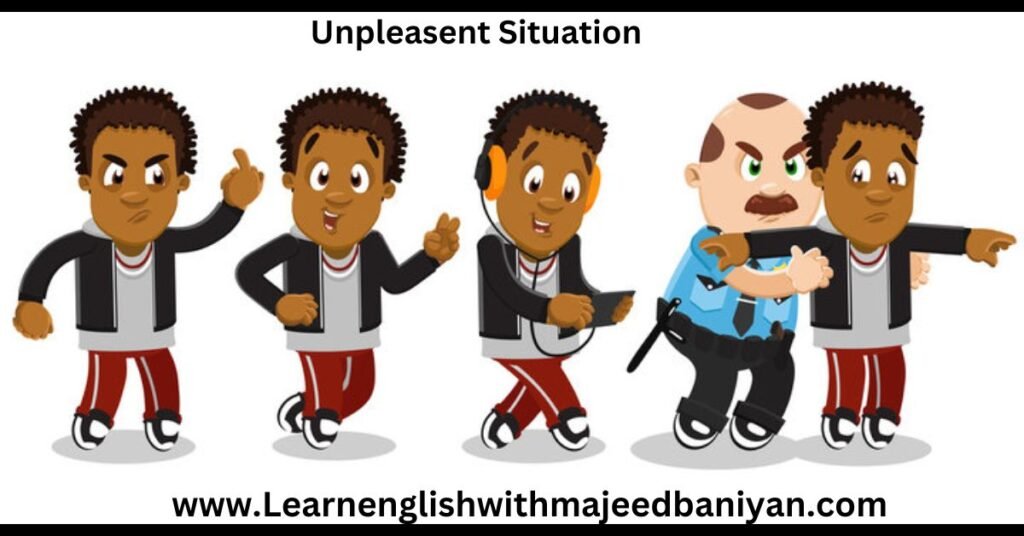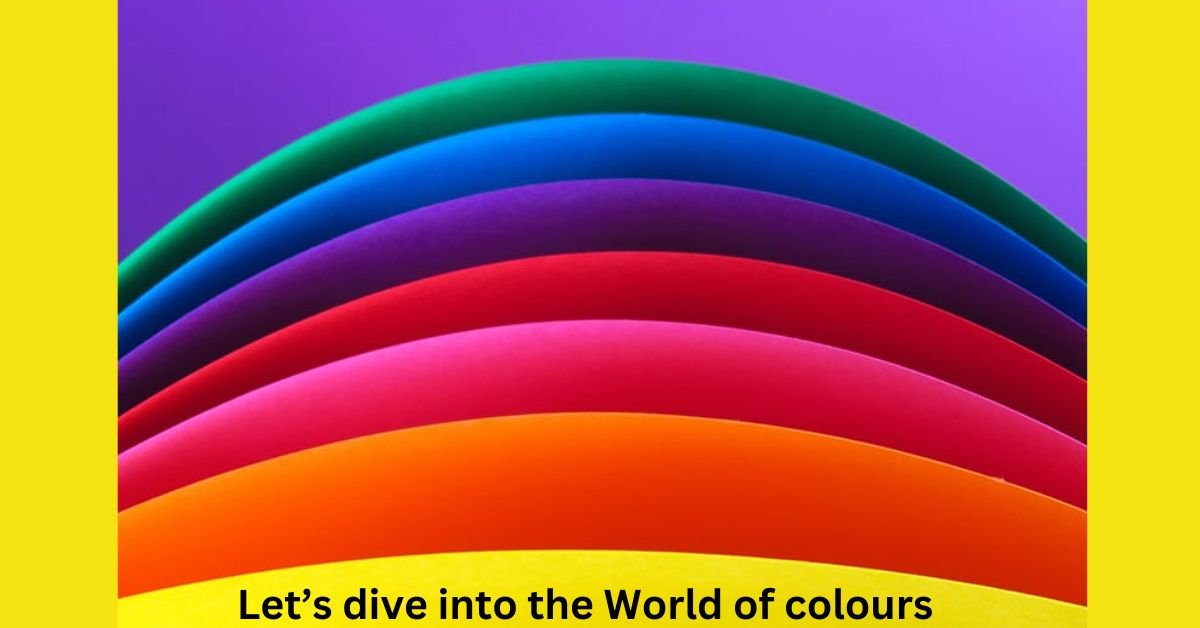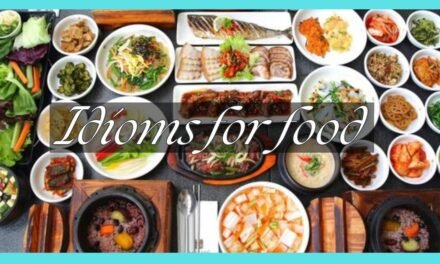Idioms for colours
The English language offers a vibrant tapestry of ways to express ourselves beyond the literal meaning of words. Idioms, those colorful expressions, add depth and imagery to our communication. This guide dives into the world of Idioms for Colours. From feeling “blue” (sad) to “seeing red” (angry), these phrases paint pictures with words, helping us express emotions and situations in a unique way.

Don’t be fooled by their simplicity – Idioms for Colours often have rich histories and cultural references. Mastering these expressions will elevate your communication, allowing you to navigate any situation with the perfect shade of language. Get ready to expand your vocabulary with Idioms for Colours and paint your conversations with a rainbow of color!
1. Feeling Blue (Sad or Depressed)
-
Meaning: This idiom describes a state of sadness, melancholy, or low mood.
-
Example Sentence: “She’s been feeling blue ever since her dog passed away.”
-
Use it When: You want to express sadness or empathy for someone going through a tough time.

2. Tickled Pink (Delighted or Very Pleased)
-
Meaning: This idiom describes extreme happiness or delight.
-
Example Sentence: “I was tickled pink when I received the promotion.”
-
Use it When: You want to express strong joy or excitement about something.
3. See Red (Become Extremely Angry)
-
Meaning: This idiom describes a sudden burst of anger or rage.
-
Example Sentence: “He saw red when he saw someone vandalizing his car.”
-
Use it When: You want to convey intense anger or frustration. (Note: Be mindful of the context when using this idiom, as it can sound aggressive.)
4. Black and White (Clear-cut or Simple)
-
Meaning: This idiom describes something with only two clear options or no room for interpretation.
-
Example Sentence: “The rules were black and white: no phones allowed in class.”
-
Use it When: You want to emphasize the simplicity or clarity of a situation.

5. Once in a Blue Moon (Very Rarely)
-
Meaning: This idiom describes something that happens extremely infrequently.
-
Example Sentence: “We only get to see our grandparents once in a blue moon.”
-
Use it When: You want to convey how uncommon or rare something is.
6. Feeling Green (Envious or Jealous)
-
Meaning: This idiom describes a feeling of envy or jealousy towards someone else’s possessions or success.
-
Example Sentence: “She was feeling green about her friend’s amazing vacation photos.”
-
Use it When: You want to express mild envy or jealousy, but be mindful of the potential negative connotations.
7. Black Sheep (The Odd One Out)
-
Meaning: This idiom describes someone who is different from the rest of the group or family.
-
Example Sentence: “He was always considered the black sheep because of his unconventional hobbies.”
-
Use it When: You want to describe someone who deviates from the norm or doesn’t fit in.

8. Born with a Silver Spoon in Your Mouth (Privileged or Wealthy from Birth)
-
Meaning: This idiom describes someone who was born into a wealthy or privileged family.
-
Example Sentence: “He was born with a silver spoon in his mouth and never had to work a day in his life.”
-
Use it When: You want to express someone’s inherent advantages due to wealth or social status.
9. Red-Handed (Caught in the Act)
-
Meaning: This idiom describes being caught in the middle of doing something wrong.
-
Example Sentence: “The thief was caught red-handed trying to steal jewelry from the store.”
-
Use it When: You want to describe someone being caught committing an act, often dishonest or illegal.
10. Roll Out the Red Carpet (Give Someone a Warm Welcome)
-
Meaning: This idiom describes giving someone a very special and enthusiastic welcome.
-
Example Sentence: “They rolled out the red carpet for the visiting dignitaries.”
-
Use it When: You want to express a particularly warm and welcoming reception for someone.
11. Paint the Town Red (Have a Lot of Fun)
-
Meaning: This idiom describes engaging in exciting and possibly wild activities, often at night.
-
Example Sentence: “The group of friends decided to paint the town red on their last night in Vegas.”
-
Use it When: You want to describe a time of great amusement and celebration, possibly with a hint of mischievousness.

12. Green With Envy (Extremely Jealous)
-
Meaning: This idiom describes a stronger version of “feeling green,” signifying intense envy or jealousy.
-
Example Sentence: “She was green with envy when her coworker got the promotion she was hoping for.”
-
Use it When: You want to convey a deeper level of jealousy or covetousness towards someone else’s possessions or achievements.
13. Under the Weather (Feeling Unwell)
-
Meaning: This idiom describes feeling slightly sick or indisposed.
-
Example Sentence: “I’m a bit under the weather today, so I’ll have to stay home from work.”
-
Use it When: You want to express that you’re not feeling well, but not severely ill.
14. See Through Rose-Colored Glasses (Be Too Optimistic or Naive)
-
Meaning: This idiom describes someone who has an unrealistic or overly positive view of a situation.
-
Example Sentence: “He sees the world through rose-colored glasses and believes everyone has good intentions.”
-
Use it When: You want to describe someone who is overly optimistic to the point of being naive or unrealistic.
15. With Flying Colors (Successfully or Excellently)
-
Meaning: This idiom describes completing a task or achieving something with great success.
-
Example Sentence: “She passed the exam with flying colors and is now qualified to become a doctor.”
-
Use it When: You want to emphasize a remarkable achievement or successful completion of something.
16. Give the Green Light (Approve or Permit Something)
-
Meaning: This idiom describes giving permission or approval to proceed with something.
-
Example Sentence: “The manager finally gave the green light for the marketing team to launch the new ad campaign.”
-
Use it When: You want to convey formal or official authorization for an action.
17. White Lie (A Small Harmless Lie)
-
Meaning: This idiom describes a minor untruth told to avoid hurting someone’s feelings or to maintain peace.
-
Example Sentence: “I told her the cake looked delicious, even though it was a bit dry, just to be polite – a white lie.”
-
Use it When: You want to describe a small, well-intentioned lie. (Note: While white lies are generally considered harmless, use them sparingly.)

18. Show Your True Colors (Reveal Your True Nature)
-
Meaning: This idiom describes someone revealing their real personality or motivations, often after pretending to be something they’re not.
-
Example Sentence: “He finally showed his true colors when he betrayed his best friend.”
-
Use it When: You want to express that someone’s hidden nature or intentions have become evident.
19. Greenhorn (A Beginner or Inexperienced Person)
-
Meaning: This idiom describes someone who is new to a particular activity or field and lacks experience.
-
Example Sentence: “As a greenhorn in the tech industry, he had a lot to learn.”
-
Use it When: You want to describe someone who is new and still developing their skills in a particular area.
20. Hit the Nail on the Head (Be Exactly Right or Accurate)
-
Meaning: This idiom describes perfectly understanding or explaining a situation.
-
Example Sentence: “She hit the nail on the head when she explained the reasons behind the company’s decline in sales.”
-
Use it When: You want to emphasize a perfect explanation or a completely accurate assessment.
21. Yellow Bellied (Cowardly or Lacking Courage)
-
Meaning: This idiom describes someone who is easily frightened or unwilling to stand up for themselves.
-
Example Sentence: “He refused to fight the bully and ran away, acting like a yellow belly.”
-
Use it When: You want to express that someone is lacking courage or bravery. (Note: This idiom can be considered offensive, so use it with caution.)

22. Green Thumb (A Talent for Gardening)
-
Meaning: This idiom describes someone who is skilled and successful in growing plants.
-
Example Sentence: “My grandma has a green thumb and can turn any barren patch into a flourishing garden.”
-
Use it When: You want to express someone’s natural ability or talent for gardening.
23. In the Red (In Debt or Financially Difficult)
-
Meaning: This idiom describes a financial situation where you owe more money than you have.
-
Example Sentence: “The company has been in the red for months and might face bankruptcy.”
-
Use it When: You want to describe a negative financial situation.
24. Paint a Grim Picture (Describe a Negative or Unpleasant Situation)
-
Meaning: This idiom describes using words to create a dark or bleak image of a future event or situation.
-
Example Sentence: “The news report painted a grim picture of the economic crisis.”
-
Use it When: You want to convey a negative or discouraging outlook on something.

25. A Red Letter Day (A Very Important or Memorable Day)
-
Meaning: This idiom describes a significant or life-changing day that holds special meaning.
-
Example Sentence: “Graduation day was a red letter day for all the students.”
-
Use it When: You want to emphasize the importance or specialness of a particular day.
26. Grey Area (An Uncertain or Unclear Situation)
-
Meaning: This idiom describes a situation where the rules or guidelines are unclear, leaving room for interpretation.
-
Example Sentence: “Whether we can claim this expense on our taxes falls into a grey area.”
-
Use it When: You want to express a situation lacking clear boundaries or definitions.
27. Whitewash (Try to Hide Something Negative)
-
Meaning: This idiom describes attempting to cover up something wrong or embarrassing by making it seem less serious.
-
Example Sentence: “The politician tried to whitewash the scandal, but the truth eventually came out.”
-
Use it When: You want to express the act of trying to conceal something negative.
28. Seething Red (Extremely Angry)
-
Meaning: This idiom goes beyond “seeing red” and describes a state of intense and simmering anger.
-
Example Sentence: “He was seething red after his boss unfairly reprimanded him.”
-
Use it When: You want to convey a deeper level of anger, bordering on rage.

Conclusion
By incorporating these “Idioms for Colours” into your vocabulary, you’ll transform your communication from basic to brilliant. Imagine painting a picture with words, where “feeling blue” evokes sadness and “seeing red” ignites anger. These expressions add a layer of depth and personality to your conversations, leaving a lasting impression on your listeners.
So, the next time you want to express something beyond the ordinary, don’t hesitate to reach for a colorful idiom. With a little practice, you’ll be weaving these “Idioms for Colours” seamlessly into your speech, leaving others in awe of your expressive language skills. Remember, mastering these idioms isn’t just about memorizing phrases; it’s about understanding the emotions and situations they represent. Embrace the vibrant world of “Idioms for Colours,” and watch your communication skills blossom!

I hope you enjoyed the post Idioms for food. In this post, delicious foods and their taste-related idioms are discussed. I have also written posts on Idioms for emotions, Idioms for jobs, Idioms for business, Idioms for relationships, Idioms for love, Idioms for fun, Idioms for education, Idioms for health. You can just click and read these posts in detail.









It is in reality a great and useful piece of info. I¦m happy that you shared this useful information with us. Please keep us up to date like this. Thanks for sharing.
Disquieting thca flower has been quite the journey. As someone rapier-like on usual remedies, delving into the world of hemp has been eye-opening. From THC tinctures to hemp seeds and protein pulverize, I’ve explored a brand of goods. Teeth of the disorder surrounding hemp, researching and consulting experts tease helped cross this burgeoning field. Overall, my sophistication with hemp has been positive, sacrifice holistic well-being solutions and sustainable choices.
Disquieting https://www.nothingbuthemp.net/pages/are-delta-9-drinks-bad-for-you has been somewhat the journey. As someone pointed on usual remedies, delving into the coterie of hemp has been eye-opening. From THC tinctures to hemp seeds and protein puissance, I’ve explored a type of goods. Regard for the confusion bordering hemp, researching and consulting experts own helped navigate this burgeoning field. Comprehensive, my experience with hemp has been optimistic, offering holistic well-being solutions and sustainable choices.
Trying thc drinks has been perfectly the journey. As someone pointed on natural remedies, delving into the world of hemp has been eye-opening. From THC tinctures to hemp seeds and protein powder, I’ve explored a type of goods. In defiance of the misunderstanding surrounding hemp, researching and consulting experts receive helped navigate this burgeoning field. Comprehensive, my live with hemp has been despotic, gift holistic well-being solutions and sustainable choices.
This is a topic close to my heart cheers, where are your contact details though?
Thanks for another magnificent post. Where else could anybody get that kind of information in such a perfect way of writing? I have a presentation next week, and I’m on the look for such info.